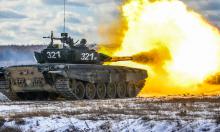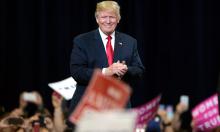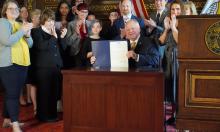Top 5 warning signs in US economy for 2008
Everyone knows the U.S. economy is teetering on the edge of recession in the next year, but no one knows if it will tip. Today nobody can not say for sure whether the troubles in the housing market and financial markets spill over enough to halt the economic growth in 2008.

The following are 5 warning signs in US economy for 2008.
1. Credit markets
Libor, interest rate spreads.
The spread between the London Interbank Overnight Rate, or Libor, and an ultrasafe 3-month Treasury bill has recently been 75 basis points, but is usually about 10. If the spread returns to normal, the danger from the credit squeeze could be over and the economy might escape without too many scratches.
The biggest unknown in the economy right now is the condition of short-term credit markets that big businesses rely on for their immediate funding needs. Some of those markets are functioning well, but others are clogged up. Some firms, especially those in the mortgage business, can't sell commercial paper at any price. Other companies can't get funding from banks because banks are hoarding their reserves.
2 . Capital spending
Investments in core equipment. Profits.
If companies can't borrow money, they'll turn increasingly to their own internal funds from profits to finance expansion projects. The good news is that many companies are sitting on loads of retained earnings and have the capacity to invest, but many others will feel the squeeze as profit growth slows in 2008.
3 . Oil prices
Crude oil futures prices. Core inflation rates.
If there's anything worse than recession, it's stagflation, a condition that combines slow growth and rising prices. As well as determining whether inflation remains steady and manageable or explodes out of control, the price of oil could be a major factor in how fast the global economy grows.
The good news so far: Core inflation remains moderate. But inflation hawks on the Fed and in the private sector worry that an inflationary psychology could be taking hold that could push all prices higher.
On the growth side of the equation, the good news is that the global economy has been able to adjust to $80 a barrel oil without killing growth. What we don't know is whether the global economy can thrive under the double whammy of higher energy prices and slower American growth. Would China's growth stumble?
4 . Exports
Exports, the value of the dollar, global growth rates
If there's one bright spot in the U.S. economy, it's the growth of exports. With the dollar weakening, U.S. producers are once again gaining market share in the global market place. Slowly, the U.S. economy is transforming from a nation that builds too many homes to a nation that makes tradable goods.
5. Housing
The number of homes on the markets, housing starts.
Housing has been the big drag on the economy for several years and will probably be so again in 2008.
Home builders have been trying to slash their inventory of unsold homes, but haven't made much progress because sales are falling as fast as new construction is. The official inventory statistics understate how bad it really is for builders because they don't account for canceled sales.
Few observers expect any growth from housing in the next year, although some expect the bottom to come by midyear, while others don't hold out any hope for 2008 at all. If the inventory of homes on the market falls enough, the housing market could stop being such a negative.
Click here to read the full text of the article.
Source: Marketwatch.com
Subscribe to Pravda.Ru Telegram channel, Facebook, RSS!




